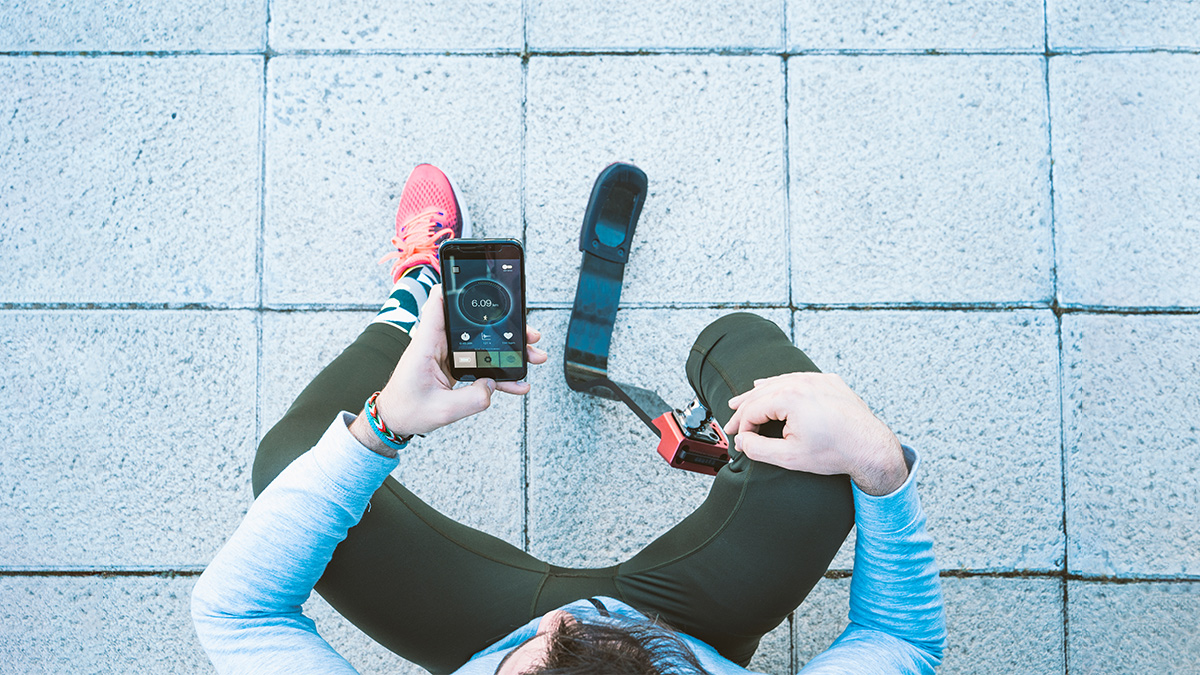In today’s fast-paced world, where technology has become an integral part of our lives, it’s no surprise that it has also revolutionized the way we approach health and wellness. The rise of health apps has given us the power to take control of our well-being, quite literally, at our fingertips. These applications, accessible on our smartphones and tablets, offer a myriad of features and functionalities that are shaping the way we manage and improve our lifestyle. In this article, we’ll delve into the profound impact of health apps on our daily lives and how they are redefining the landscape of health and wellness.
Table of Contents
- Introduction
- The Evolution of Health Apps
- Convenience and Accessibility
- Personalized Health and Fitness
- Monitoring Vital Signs in Real-time
- Encouraging Physical Activity
- Nutritional Guidance and Meal Planning
- Mental Health and Mindfulness
- Connecting with Healthcare Professionals
- Challenges and Concerns
- Privacy and Data Security
- Navigating the Sea of Choices
- The Future of Health Apps
- Conclusion
- FAQs
Introduction
Gone are the days when monitoring one’s health required regular visits to the doctor or sifting through pages of fitness magazines. Health apps have emerged as our virtual health companions, empowering us to track, manage, and enhance various aspects of our well-being. Whether it’s maintaining a healthy diet, staying physically active, or managing stress, these apps offer comprehensive solutions.
The Evolution of Health Apps
From simple step counters to sophisticated platforms that integrate with wearable devices, health apps have evolved significantly. They have transitioned from basic fitness trackers to holistic platforms that cater to a wide array of health needs. With the integration of AI and data analytics, these apps provide actionable insights tailored to individual preferences and goals.
Convenience and Accessibility
The most remarkable feature of health apps is their accessibility. With just a few taps, users can access a treasure trove of health-related information and tools. This convenience eliminates the barriers that often discourage individuals from taking proactive steps towards a healthier lifestyle.
Personalized Health and Fitness
One size doesn’t fit all, especially when it comes to health. Health apps excel at personalization, adapting to user inputs and providing customized recommendations. Whether it’s creating a workout routine, suggesting recipes, or sending reminders to take medications, these apps cater to individual preferences.
Monitoring Vital Signs in Real-time
Thanks to the integration of wearable devices, health apps can now monitor vital signs in real-time. From heart rate to sleep patterns, users can effortlessly gather data that offers insights into their overall health. This real-time monitoring can be instrumental in detecting potential health issues early on.
Encouraging Physical Activity
Sedentary lifestyles contribute to a host of health problems. Health apps combat this by encouraging physical activity. Through gamification, goal-setting, and progress tracking, these apps make exercising more engaging and motivate users to stay active.
Nutritional Guidance and Meal Planning
Maintaining a balanced diet is crucial for well-being. Health apps simplify this process by offering nutritional guidance and meal planning. Users can log their food intake, receive calorie counts, and access healthy recipes that align with their dietary goals.
Mental Health and Mindfulness
Health is not just about the body; it’s also about the mind. Many health apps now focus on mental health and mindfulness. Guided meditation, stress-relief techniques, and mood tracking are some features that promote emotional well-being.
Connecting with Healthcare Professionals
Virtual consultations and telemedicine are becoming more prevalent. Health apps facilitate seamless communication between users and healthcare professionals. This connectivity ensures timely advice and interventions, especially for those with chronic conditions.
Challenges and Concerns
While health apps offer remarkable benefits, they also raise certain challenges. Privacy concerns, accuracy of data, and the potential to replace human interaction are some of the issues that need addressing.
Privacy and Data Security
Health data is sensitive, and ensuring its security is paramount. Users need to trust that their personal information won’t be compromised. Developers must adhere to stringent data protection protocols.
Navigating the Sea of Choices
The app stores are flooded with health-related applications. Navigating this sea of choices can be overwhelming. Users should look for apps backed by reputable sources, positive user reviews, and transparent privacy policies.
The Future of Health Apps
The future holds exciting possibilities for health apps. With advancements in AI, machine learning, and wearable technology, these apps will become even more sophisticated. They’ll provide deeper insights, smarter recommendations, and seamless integration into our daily lives.
Conclusion
Health apps have ushered in a new era of proactive health management. By putting the power of information and tools in users’ hands, these apps are transforming the way we approach wellness. From physical fitness to mental well-being, the impact of health apps is profound and far-reaching.
FAQs
- Are health apps suitable for all age groups?
Health apps cater to a wide range of age groups, offering features for children, adults, and seniors alike.
- Do health apps replace the need for regular doctor visits?
While health apps provide valuable insights, they should complement, not replace, professional medical advice.
- How secure is my health data within these apps?
Reputable health apps prioritize data security and employ encryption to protect user information.
- Can health apps help with weight loss?
Yes, many health apps offer weight management features, including tracking calories and creating workout plans.
- Are free health apps as effective as paid ones?
The effectiveness of an app depends on its features and user reviews, not necessarily its price. It’s important to choose based on functionality rather than cost.
